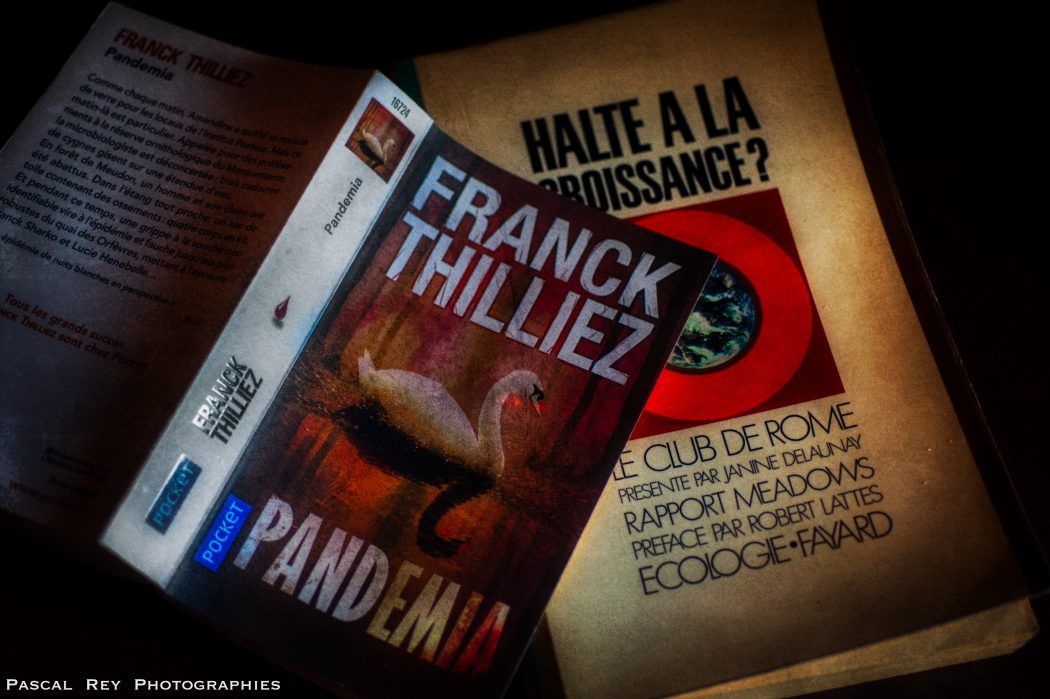While fiction often depicts an idealized version of reality, there is also an expectation that books taking place within the real world will mirror our own lives in one way or another. Reading about characters who are going through the same thing as we are creates a sense of kinship and makes us empathize more deeply with them. These days, it’s become a little more difficult to feel that connection, as their world is so disconnected from our own. While reading has always been my method of escape, now I can’t help but wince at the characters’ casual touches and lack of mask wearing. The ballroom dances of Pride and Prejudice and Jay Gatsby’s lavish parties are no longer as entrancing when all I can think about is the risk of transmission.
This subject of capturing reality in fiction has become a topic of great concern for authors, as they are now forced to look at their current projects and reevaluate elements that could only occur in a pre-pandemic world. Most writers are still deliberating over the best way to incorporate this new reality into their stories. Canadian author Eric Walters decided to tackle the subject head-on and release a pandemic fiction novel on June 22 entitled Don’t Stand Too Close To Me.
A book that tackles a subject as serious as this pandemic requires a lot of care and tactfulness, and forty-four days doesn’t seem like enough time to do all that.
My initial reaction upon seeing the announcement for this book back in May was one of shock. While I knew that COVID-related fiction was bound to happen, I didn’t expect it to happen this soon, while we were still in the midst of it all. Another thing that I found surprising was how soon this book was published after being written. Typically, a novel takes years to see the light of day, but with Don’t Stand So Close To Me Walters published the novel just forty-four days after coming up with the idea. A book that tackles a subject as serious as this pandemic requires a lot of care and tactfulness, and forty-four days doesn’t seem like enough time to do all that. However, I’m not one to preemptively judge a book, so I decided to read Eric Walters’s book for myself to see how he chose to depict the strange new world we’ve been living in for the past six months.
The book doesn’t attempt to provide any solutions for what’s going on — we’re still working on that ourselves in the real world…
Don’t Stand So Close To Me follows fourteen year old Quinn in the initial weeks of quarantine as she deals with pandemic-related anxieties such as her school closing and her dad being a frontline worker. The novel is targeted towards middle-graders, but I still found it to be enrapturing and finished it in two sittings. While the book at times veers towards a very generic depiction of the pandemic, there are moments of hope that really enhanced the experience of the book. One such scene is where Quinn organizes a mask-making project with her classmates and collects them to donate to an old-age home. The book also ends on a sweet note when Quinn and her friends organize a socially-distanced dance to make up for the school event they missed out on. The book doesn’t attempt to provide any solutions for what’s going on — we’re still working on that ourselves in the real world — but instead offers a slice-of-life story that shows the trials and tribulations of a typical teenager in quarantine.
One of Walters’ goals while writing this book was to educate his readers, and while it is clear that he did try to do that, it often came off as very condescending. He uses Quinn as a vessel to provide simplistic explanations of terms we have all grown familiar with such as “social distancing” and “flattening the curve.” For me, these instances are the weakest point in the novel. The young teens that read this book don’t need to have these phrases explained to them; like us, they’ve been exposed to them for months. These rudimentary explanations may be necessary if this were a book aimed for small children with no grasp on the pandemic, but here it just felt like Eric Walters was talking down to his adolescent readers. There’s a difference between trying to provide levity and simply speaking down to others, and unfortunately this book only truly accomplished the latter.
While there is admittedly power in the mundane, it’s important to consider what kind of narratives we are uplifting.
While the book isn’t inherently awful, once I finished it, I couldn’t help but wonder if it was even necessary. There are so many important pandemic-related stories that could be told, and I just don’t know if this run-of-the-mill book is appropriate right now. While there is admittedly power in the mundane, it’s important to consider what kind of narratives we are uplifting. Personally, I don’t think it’s the right time for these stories, but if they are going to happen, I want to see books that tackle subjects like racism or classism, and how Black, Indigenous, or working-class people may have been affected these past few months.
There’s a lot of potential for books that depict the pandemic, but they need to be told by the right people and give attention to voices that need to be heard. It takes time to process traumatic events — most authors needed four years before they started to feel comfortable writing about 9/11 — and it is difficult, if not impossible, to properly process something while it’s still happening. Maybe years from now, when the pandemic is past us, I wouldn’t mind reading something that was a little lighter, but right now, it doesn’t feel right to be capitalizing on the subject in that way.
I don’t need books to remind me of the bleak world that we are living in…
Don’t Stand Too Close To Me is definitely not going to be the last pandemic fiction novel that will be published within the next year. A lot of writers use fiction as a way to cope with difficult times, so I suppose it’s only natural that they would want to write about COVID-19. Already on the market are a quarantine romance, a pandemic thriller and, most disturbingly, a ‘viral erotica’ featuring a personified Coronavirus.
I’m sure that there are many readers who would find comfort in these stories, but I’m not one of them. I’m not swearing off of these stories altogether, but I’m not going to be seeking them out either. I don’t need books to remind me of the bleak world that we are living in, especially when the books on the market come across as rushed cash grabs, rather than careful accounts of those who are actually enduring the worst of these tough times.








